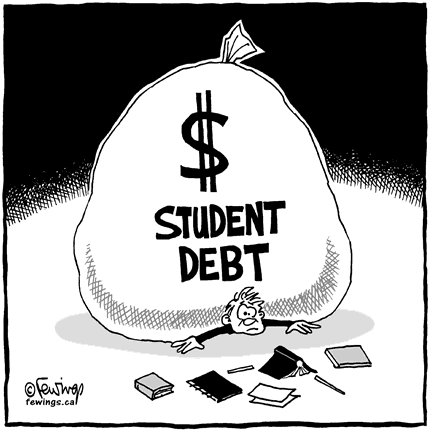
By Sally Holland
Posted by Leah Gorham
WASHINGTON (CNN) -- As a graduate from Syracuse University with a master's degree in international relations, Jana Morgan was hoping to help victims of human rights violations caused by resource wars.
The tight job market, though, has made her put those dreams aside for now while she pays her bills -- by waiting tables at The Barrack's Inn in Sackets Harbor, New York.
Morgan is realistic about her future income options. "If you are going into public service, you aren't going there to make money, you are going there to help people," she said in a recent interview.
Her less-than-anticipated income means that it is difficult for her to make her student loan payments for the nearly $80,000 in debt she accumulated getting through college. Morgan is looking at a new law that goes into effect July 1 that would help her cap her student loans at 15 percent of her adjusted gross income.
Then, if she completes 10 years of public service, her loans would be dropped completely. Based on her current income, her $800 payments would go away for the time being, according to calculations she did on the Department of Education's Web site.
The College Cost Reduction and Access Act that created the new Income-Based Repayment program was signed into law in 2007 to help make student loan payments more manageable.
Click here to read more.






